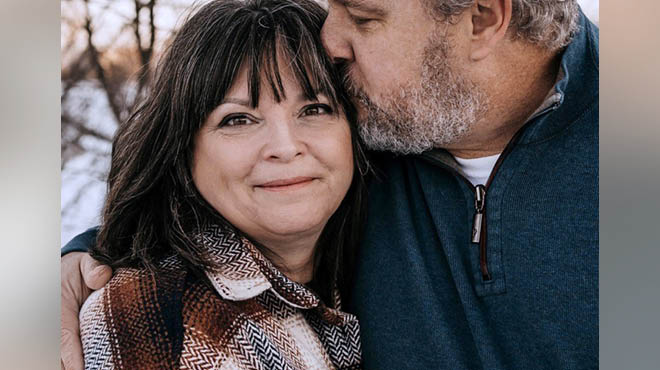Recent Posts
Breast cancer diagnosis leads to surprising discovery

Mary Klimp remembers exactly when her life changed: 2:24 p.m. on Monday, June 24. That’s the moment she received a call from Stephanie Kivi, M.D., her primary care provider, with the news that she had breast cancer.
“I’ll never forget it,” the 66-year-old New Prague, Minnesota, resident says. “I’ve been healthy. I work out. I was completely caught off guard by the diagnosis.”
Breast cancer was not on Mary’s mind when she had a mammogram 10 days earlier. The exam had been just another item on her to-do list, along with a trip to the dentist and a haircut. And breast cancer was not on her mind later that day, when she received a call with the news that she’d need to have a repeat mammogram.
“I thought nothing of it,” Mary says.
Though that test included a biopsy, Dr. Kivi reached out to Mary to reassure her.
“Dr. Kivi called to tell me only 1 in 5 biopsies is cancerous,” Mary says.
A few days later, Dr. Kivi would call again — this time, with the news that Mary was the 1 woman in 5 whose breast biopsy revealed a malignancy.
“That news just changes your whole world,” Mary says. “You’re entering into the unknown.”
But she wasn’t going there alone. A dedicated team of health care providers, including Dr. Kivi, would be there to accompany her on the journey. So would Mary’s friends and family, including her husband, David, and daughter, Christina Boardman. She also would discover a new source of support: other cancer patients.
“I’ve met so many people who have recently been diagnosed,” Mary says. “We’re the new faces of breast cancer. Next year, there will be other new faces. My story is not unique. I’ve been surprised to learn how prevalent this disease is.”
As Mary has learned, breast cancer is the second-most common cancer diagnosed in women in the U.S. — only skin cancer ranks higher. According to the National Institutes of Health, about 1 in 8 women — around 12% — will develop breast cancer in their lifetimes.
Personal, personalized treatment
Mary’s treatment plan began coming together immediately after her diagnosis. First, she met with Tara Krosch, M.D., a general surgeon.
“Dr. Krosch gave me a ton of information and outlined my surgical options,” Mary says.
Options included a single or double mastectomy, or a lumpectomy. Mary chose the double mastectomy.
“I have a lot of cancer in my family, and I wanted to live without worry,” she says.
Mary then met with Albert Harris, M.D., a plastic and reconstructive surgeon, and Stephan Thomé, M.D., an oncologist. Dr. Harris outlined a plan for reconstruction, which would begin by putting silicone tissue expanders in Mary’s chest immediately after Dr. Krosch completed her mastectomy.
Dr. Thomé outlined the medical treatment that would follow Mary’s recovery from surgery. Testing had revealed that her tumors were HER-2 positive, as well as estrogen receptor positive and progesterone receptor negative. Based on this detailed information, Dr. Thomé recommended she have 12 weeks of chemotherapy and a year of antibody therapy.
Mary says it’s important for women diagnosed with breast cancer to learn as much as possible about their specific type of cancer to get the most targeted treatment available.
“Learning that my cancer was HER2 and estrogen positive had an impact on my treatment plan,” Mary says.
Setbacks and support
That treatment plan began on July 30, when Dr. Krosch performed a mastectomy, and Dr. Harris inserted tissue expanders in Mary’s chest. Chemotherapy and antibody therapy were scheduled to begin three weeks later. But slow healing would change that plan.
“The beginning of treatment was delayed three weeks, which was hard emotionally,” Mary says. “I wanted to keep moving forward.”
She began chemotherapy on Sept, 11, completing four cycles before encountering another complication that required the removal of the tissue expanders on each side of her chest, delaying treatment again. These setbacks were made easier, Mary says, because of the care she received.
“Dr. Harris was so compassionate,” she says. “He was so gentle with me and took so much time reassuring me that everything would be OK.”
OK, but not easy. Chemotherapy has brought with it hair loss, fatigue and nausea.
“By day six or seven of each cycle, I’m feeling good again,” Mary says. “Then on day eight, it’s time to start the cycle over.”
Because she knew she likely would lose most of her hair, Mary made a trip to the Flower of Hope store on the Mayo Clinic campus in Rochester, which offers hats, scarves and wigs for people who have experienced hair loss due to medical treatments. Her husband and daughter were there too, and though Mary says the trio shed some tears, the staff had them laughing by the time they went home, and she felt so cared for there.
That’s a feeling Mary has experienced throughout her diagnosis and treatment, from her first phone call from Dr. Kivi to all of the appointments and treatments that have followed.
“I feel like everyone genuinely cares about me as a person,” Mary says. “I’ve received very personal care. The whole team has been fabulous.”
And although she’s received care in both New Prague and Mankato, Mary says the team always has been on the same page.
“My care has been completely integrated,” she says.
Looking ahead
That care will continue at least through September 2020. Mary says her prognosis is very good — so good that she already is making a list of goals and plans for the future.
“The top of the list is to walk the Susan Komen 5K on Mother’s Day with my family,” says Mary, who has become passionate about raising awareness about breast cancer, especially the importance of preventive screenings. “Annual mammograms are so important. Without my mammogram, I still may l not know I had cancer, and it would have been growing.”
While Mary is nearing the end of treatment, she says it won’t be the end of thinking about cancer.
“Having cancer changes you,” she says. “I think it will always be in the back of my mind now.”
That feeling is familiar to Mary’s newest friends and cheerleaders — a dozen or so New Prague-area women living with different types of cancer. The group gets together once a month for dinner and conversation.
“I really wasn’t looking for a support group and when I was invited, I was initially hesitant about going,” Mary says.
She went anyway, and is grateful she did.
“It has been the best thing for me,” she says. “It is so good to talk and hear from others who are going through similar things.”
Mary hopes to provide that support to other women someday.
“As I complete my journey, I really hope to find ways to reach out to others,” she says. “People have been there for me. I want to find ways to be there for others.”
Learn more about breast cancer:
- Read about other people who have had breast cancer.
- Read FAQ about molecular breast imaging screenings for dense breasts
- Search for breast cancer classes, events and support groups in your community.






